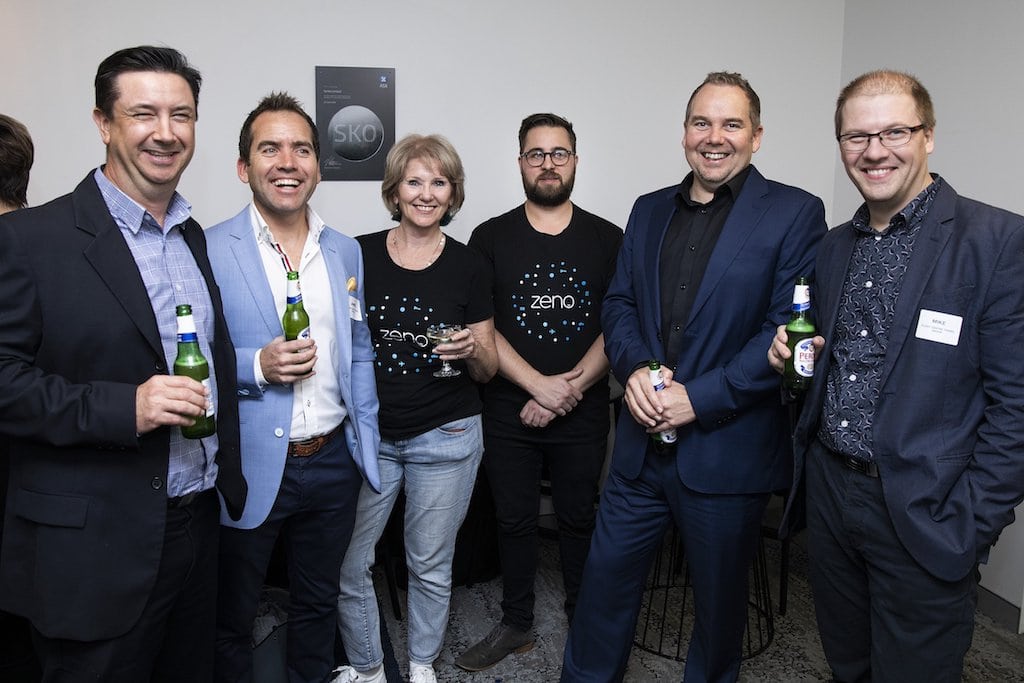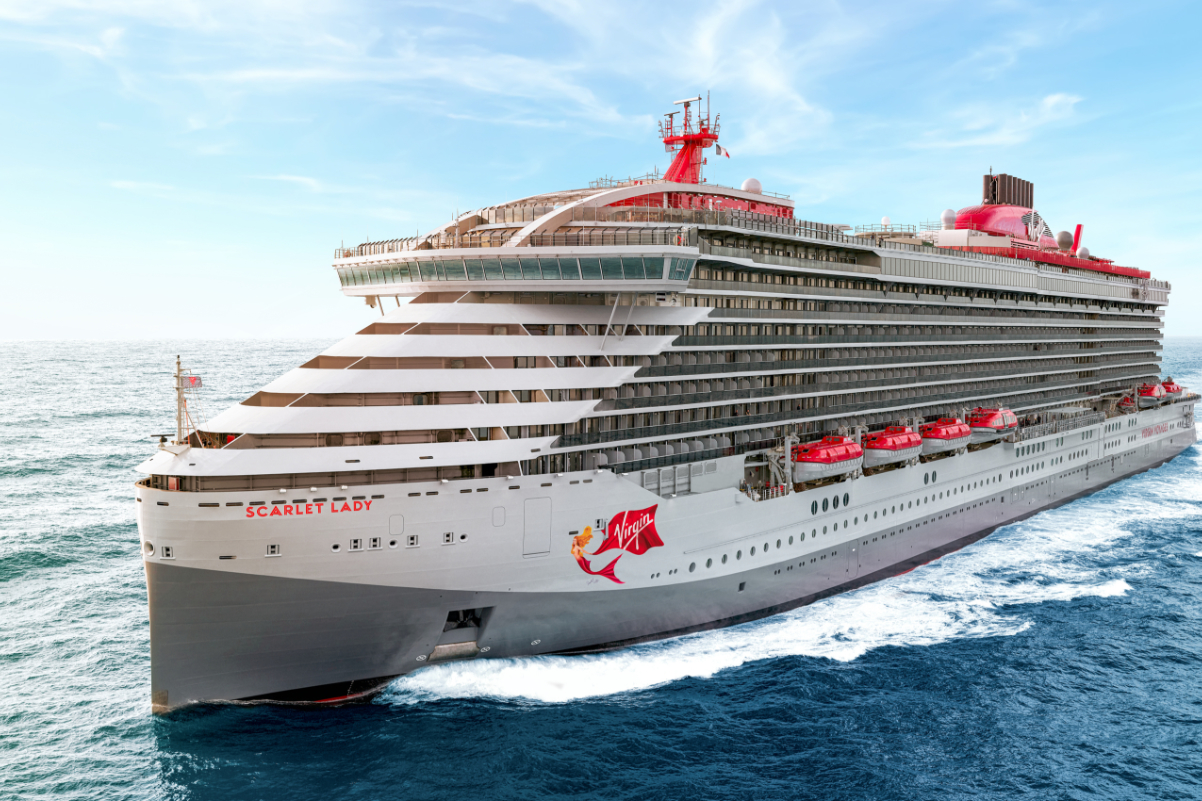Interview: Bringing a Consumer Experience to Corporate Travel

Skift Take
Corporate travel is on the cusp of a revolution in traveler experience, yet the path so far has been slow or halting.
For Darrin Grafton, CEO of Australia- and New Zealand-based corporate travel technology company Serko, a better shopping experience is just one of the most important revelations for the sector.
"The way that we sum it up is that you wouldn't walk into a grocery store and buy a can of tomatoes by just seeing a price," said Grafton. "You want to see the packaging, see if it's gluten-free, check the ingredients that are used. Today, it's fine for an enterprise site to just show a flight as a number with maybe a class next to it. The ingredients, the picture of the seat, knowing that it's a new aircraft, all of that sort of stuff doesn't come through, which is quite often activated in the consumer side. That's the paradigm shift."
The company's booking tool Zeno is gaining some traction across the industry, integrated rich content with personalization as Serko partners will global companies looking for a better business travel solution. Serko is also looking to be acquisitive, if they find the right target to enhance its technology suite.
At the same time, though, the biggest players in corporate travel are embracing technology in a big way as a global arms race of sorts heats up. Can the consumer experience really catch on in corporate travel?
Skift spoke to Grafton about building a booking tool focused on the traveler experience, the pitfalls of automated personalizations, and the challenges faced by a strong regional player looking to branch out into the global marketplace.
This interview has been edited for clarity and length.
Skift: Serko has been around for more than two decades, yet is kind of under-the-radar in corporate travel. How have you worked to develop your advanced tools for travelers and travel managers?
Darrin Grafton: We've been trying to change the travel ecosystem since we came into this foray in the '80s. Our latest iteration of our products, Zeno, was really that paradigm shift of building a piece of enterprise technology where there was no more compromise, where had no one in the process was compromised through technology. Quite often today, through online technology, whether it's expense technology or booking technology, it doesn't really create a great user experience, and it's there to save money or it's there to enforce a policy, airlines get their widget displayed as a number, and all of the sod of it. It's never really worked well.
Everyone talks about the utopia around a travel experience and we thought, well, if we could build something the same way you would buy other products that are consumerized, could we actually shift that paradigm and become sort of the Tesla of the travel industry, where every week, every day, you get some new feature that delights you and makes you quite loyal to the brand? Zeno was that paradigm shift.
It [comes from] something that we worked on in 2012 with Google, which we patented, called the Unified Traveler Experience. We worked out that there was seven modes, fly, stay, move, eat, work, play, and rest. Those seven modes, we're kind of active in when we travel and when we don't travel. If we could bring a full ecosystem together, we could enable everything to be booked, changed, interlaced with how we work, but also drop all of that commission and revenue back into the TMC ecosystem so we would make every part of that channel when we would give supply an audience, get their content displayed the right way, and the traveler and the booker to see like they would on a normal consumer side.
Skift: IATA's New Distribution Capability has been around for years, but global distribution systems are just now starting to play ball. How have you looked at these standards as an opportunity instead of a threat?
Grafton: You've had NDC come into play, which now enables a travel management company to make even more money. And I think people have concentrated on the commercials of it, rather than actually the fundamental shift of bringing the consumerization of the airline.com sites into the corporate space, and how much money can actually be made through those additional services and the functionality in it.
The way that we sum it up is that you wouldn't walk into a grocery store and buy a can of tomatoes by just seeing a price. You want to see the packaging, see if it's gluten-free, check the ingredients that are used. Today, it's fine for an enterprise site to just show that as a flight number and maybe a class next to it. The ingredients, the picture of the seat, knowing that it's a new aircraft, all of that sort of stuff doesn't come through, which is quite often activated in the consumer side. That's the paradigm shift.
Skift: We've seen the big global travel management companies pivot to becoming technology companies. But really their bonafides are in service. What do you think about this evolution?
Darrin Grafton: I think the problem that the TMCs have gone through a shift into that model and what the customer wants from them is fantastic service.
Imagine that you're employing 100 or 150 people as developers to try and build something unique rather than investing maybe a quarter of that into another technology company. All of those people that you could have had as support agents or account managers. And I think that's the risk that they run where you know where they try to over-invest into technology to stall the problem and they leave the part of what they're really good at, what their fundamentals were and becoming those experts, over supporting their customers, and give them no reason to leave. Those are some of the key fundamentals that have to be. People have to be be careful, which is when we come in and help.
Skift: At the same time, more advanced connections with airlines ties into personalization, which remains kind of a buzzword despite some progress. How has this played into the development and growth of Zeno?
Darrin Grafton: That's a really good point. When you look at personalization for us it came as an experience. We don't necessarily trust artificial intelligence or machine learning every time and so it was a balance. I'm really repetitive, you know. Travel, especially for corporate travel, is defined by a program. It's normally got some duty of care and some rules around whether I have to choose the best fair or I'm gonna have to fly economy or business travel.
So we're gonna have to find a set of rules, which means, I have a habit and I quite often will have a pattern even if it's the first time I'm traveling. I'm normally traveling light with somebody else, so why can't the technology be like the best executive assistant and if you remember back in the '80s or '90s where an assistant would hand over an itinerary and the person would walk out the door and it was all managed? So, if I've stayed 11 times in a hotel, for 15 dollars don't put me in the next hotel up.
Skift: So personalization for personalization's sake is a waste, then.
Darrin Grafton: The key thing is that you still do it within the boundaries [of a program] and then you enable the choice through personalization. So 28 percent of all of our bookings occurred on either a Saturday or a Sunday or had a Saturday or Sunday in them across Australia. And so from that you can actually determine duty of care. As long as, the business is actually offering a solution that can make this journey better, and it actually has no bound risk. But if I'm staying over the weekend, I still have the duty of care risk. So, I still might need awareness [as a travel manager], but I don't necessarily want the tax or liability risk associated to the cost.
How do you educate companies that this type of thing happens inside of the organization all of the time? People blend their business and their personal side together in some form, whether it's upgrades or longer stays or an extra day. And how do you manage the risk? How do you manage the experience? You've got to balance the business and consumer side together. That's the science in personalization as well.
Skift: Despite being a public company, Serko is still a smaller player in the ecosystem. As you've grown and ramped up operations, what have some of the challenges been?
Darrin Grafton: We do things differently, and we look at some of the problems that have existed as opportunities to solve as well. We're quite prepared to invest, and so I think a good thing is that our investment has changed from finding demand to meeting some of these demands from those customers in those regions.
When you look at customers in Asia, they're the same customers that exist worldwide. A lot of them are multi-nationals. And we're strategically going for the mid-market. We don't mind starting off small and establishing ourselves across fifty countries and building up over the next year to two years with those types of customers and then taking on the larger global accounts. We're quite happy to start in the part that gives us the fastest traction as well. So, we're pretty realistic about it. We're not trying to bite off more than we can chew. Although the demand is coming in quite quickly for it.
And we're not new. When we walk into America quite often the conversation we have is that [a potential client's] divisions are actually using us down in Asia now. And I'll go, yeah, well, it's actually really successful for us, too. So, although we seem new, we've actually been a part of some of these guys for eleven years as well. We're a public company as well. We've learned to change our conversation as well.




